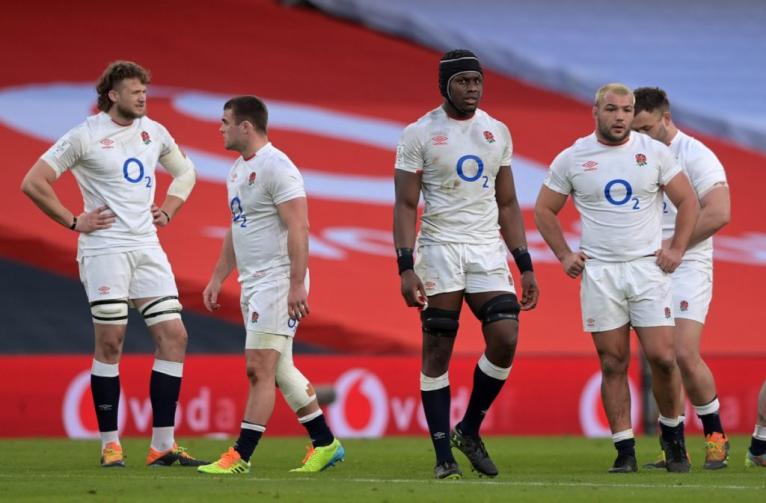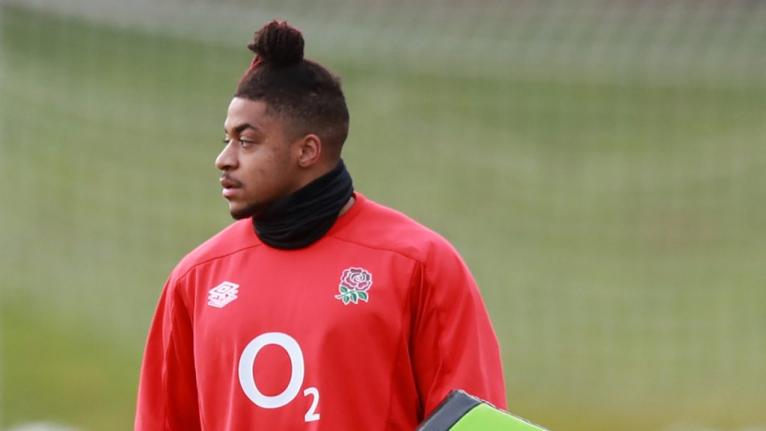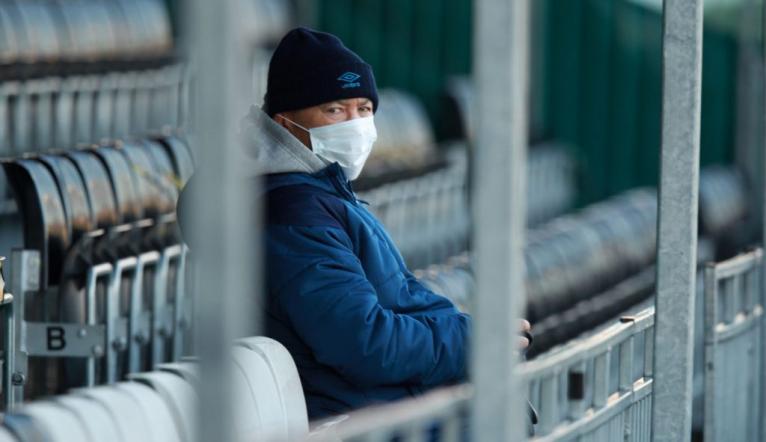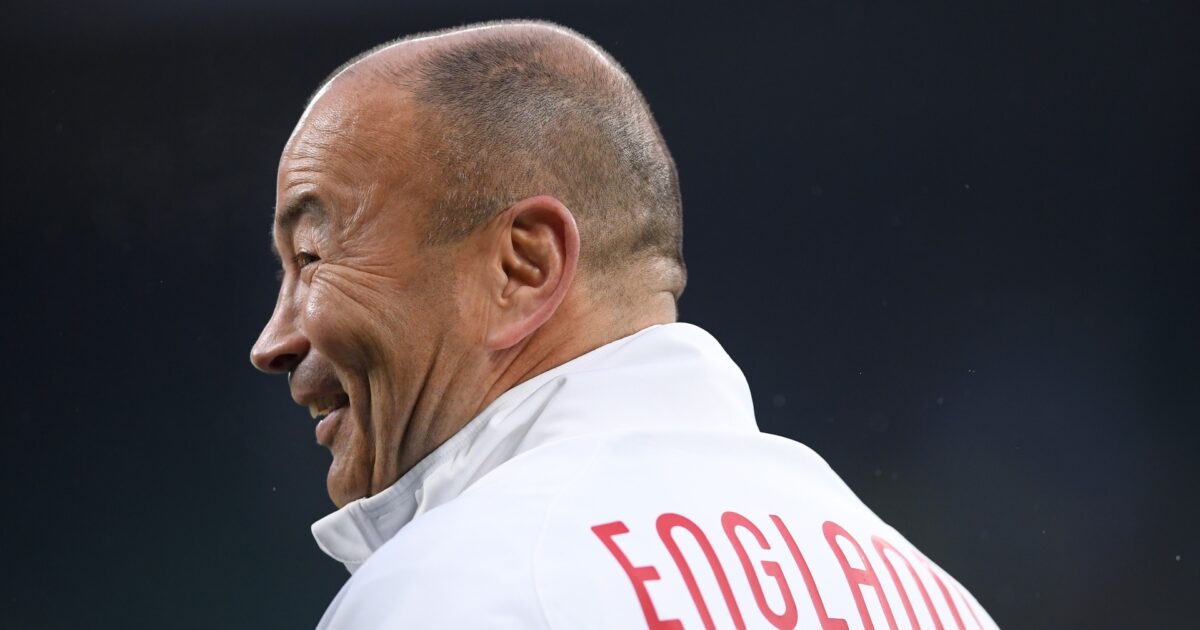RFU's Six Nations debrief reads like a list of excuses - Andy Goode

The RFU’s Six Nations debrief has backed Eddie Jones to the hilt but it seems to have absolved him of responsibility as well and reads like a list of excuses.
Clearly, there is a lot of implied criticism in there because he is the man ultimately responsible for everything to do with England’s performance but none of it is direct and it looks like an attempt to dampen flames.
Jones was never going to get sacked because he’s got credit in the bank, and you can add the current financial climate and a lack of other options to that as other more minor reasons as well, but he should have received more robust criticism than this review hands out.
It’s almost like they’re responding to England’s worst Six Nations performance ever with “the dog ate my homework” rather than anyone taking responsibility. This isn’t a blame game but there should be accountability.
In fact, they even try to dress up how bad the campaign really was by describing it as “sub-optimal”. England, with all of their resources and ability, finished fifth with only Italy below them. Sub-optimal is not the word most England fans would use.
Issues such as coaching, player preparation and availability, breakdown indiscipline, squad transition and alignment between England and the Premiership clubs are all raised and Jones is responsible for all of that, yet he is spared any direct criticism.

The debrief states that “several players did not have enough game time going into the Six Nations”, something that was widely mentioned prior to the tournament, so picking them was a mistake.
However, it also claims that “a wider group were fatigued as a result of being the only country to have back-to-back seasons” and I think that’s starting to feel like a bit of a stretch and almost like a cover up.
We know there were high-profile question marks over France’s Covid protocols but to say that England’s were “greater than other Unions” and use that as a partial explanation for the poor performance is clutching at straws.
England used just 29 players in the Six Nations, the same number as they did in the autumn, and five of those in George Martin, Beno Obano, Joe Marchant, Harry Williams and Jack Willis combined for a total of just 79 minutes.

However, Paolo Odogwu and Harry Randall, who were two of the form players in the Premiership, saw no game time at all and that was Jones’ decision. Plus, Kyle Sinckler was allowed to come into the squad after the start of the tournament following his ban so we know there was some flexibility in terms of calling players up.
There were issues with England’s coaching team as outlined in the review but then Eddie Jones chose Ed Robinson to come in as a replacement, and Simon Amor as his attack coach for that matter. This is not meant as a slight on them but they aren’t coaches who are going to challenge the head coach or who have much experience at all in the 15-a-side game.
Then there’s the breakdown indiscipline that’s mentioned, an area which was plain for all to see during the tournament and again one that Jones is responsible for.
"He has to take them because their ceiling is so high if they play well"
– Sam Warburton on the credit in the bank that a trio of Saracens players have ahead of Lions tour selection despite poor England form
https://t.co/UpnEJAZuxA— RugbyPass (@RugbyPass) April 22, 2021
The cherry on the cake in this debrief, though, is the assertion that the RFU will try to “deepen its alignment between England Rugby performance and professional clubs” when Jones has blatantly disregarded Premiership form and spoken openly about doing so.
He does regularly attend league games in person but then his relationship with some clubs and their directors of rugby is non-existent. If that were to change as a result of all this and players were to be picked on form, then it’d be a major positive.

We’re told that all future debriefs will be informed by “external rugby experts” and I’m not sure anyone knows what that means in reality but it’s clear that there needs to be someone with serious rugby IQ who is able to hold the head coach to account to a certain extent when it comes to the environment and processes.
I’ve seen it before at club level where a head coach reports directly to an owner or CEO, who can’t really question anything with any authority, and I think that’s one of the major issues with England.
You have to hope that, while this reads like a box-ticking exercise with some strange language used to explain away England’s poor performance, privately Bill Sweeney and co have made certain things abundantly clear.
Only time will tell whether that is the case really and it’ll be a while before we can judge properly because I don’t think the summer or autumn will give us a great indication.
It feels, though, like the RFU thought they needed to be seen to be doing something because reviews like this one happen all the time and remain behind closed doors. Sometimes you’re better off just not saying anything because this has created a lot more questions than answers.
“I know that O’Gara has talked about KBA and we have a similar thing with LQB"
What an attack coach without acronyms? @nick10evans talks to @chrisjonespress ??? about how @Harlequins are trying to play the game https://t.co/fPOiLpSZGM
— RugbyPass (@RugbyPass) April 22, 2021

































